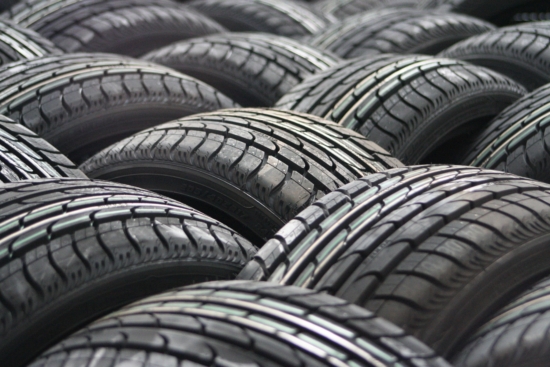Top 10 Chinese tyre industry events in 2022
 (Photo: Peakpx)
(Photo: Peakpx)
In 2022, several significant events took place in China’s tyre industry. These things had a profound impact on the tyre industry not only in 2022, but for a long time.
Tyre factories stopped production
Since March, tyre factories in many provinces, such as Shanghai, Jiangsu, and Shandong, have been affected by epidemic prevention and experienced production stop or limitation. Many enterprises were forced to adopt closed-loop management to respond. However, regional and frequent production stops and limits undoubtedly impacted the Chinese tyre industry and became the first significant event in 2022. As China eases COVID-19 regulations in late 2022, production stops and limitations by tyre companies should be substantially reduced in 2023.
The European Commission reopened the investigation
On 4 May, the European Court of Justice revoked the European Commission’s anti-dumping and anti-subsidy tariffs on Chinese-produced truck tyres. As the European Commission reopened its investigation into such products shortly after, it is too early to say that the Chinese tyre industry has won this trade friction. However, the May verdict could somewhat boost the Chinese tyre industry. As emphasised by the China Rubber Industry Association, judicial relief might save the overseas market for Chinese tyre companies.
Towards advanced manufacturing
In November, Shandong Province announced the “Action Plan for a Powerful Province of Advanced Manufacturing (2022-2025)” and emphasised the high-quality development of the tyre industry. Shandong is one of the main gathering places of China’s manufacturing industry, and the action plan is significant. Under the government’s promotion, the tyre industry’s transformation and upgrading are imminent. Whether actively seeking change or passive transformation, “high-quality development” has become something Chinese tyre companies have to face.
Sailun invested in a factory in Dongjiakou
In June, Sailun announced plans to invest of 17.48 billion yuan (about 2.07 billion pounds, 2.36 billion euros) to set up two factories in Dongjiakou, Qingdao. The investment in the tyre factory is 15.18 billion yuan (about £1.78 billion; 2.05 billion euros), involving 20 million sets of semi-steel radial tyres, 10 million sets of all-steel radial tyres, and 150,000 tons of OTR tyres. The investment in the 500,000-ton new material factory is 2.30 billion yuan (about £290 million; 310 million euros). Sailun’s investment is unusual when the entire tyre industry is in a downturn. After the Dongjiakou factory is fully put into production, the annual production capacity of Sailun radial tyres will exceed 110 million.
Serbian factory produced the first tyre
In June, Linglong’s Serbian factory witnessed the first all-steel radial tyre roll off its production line with the tread pattern Eplus-01. According to Linglong’s introduction, Eplus-01 is an ultra-low rolling resistance product and received an AA rating on the European label. The Serbian production base is the first tyre factory operated by a Chinese company in Europe, and it has played a demonstration role for Chinese tyre companies.
Triangle signed an exclusive agent
In September, wholesale distribution company Stapleton’s Tyre Services signed an agreement with Triangle for exclusive rights to operate Triangle-branded semi-steel radial tyres. The known operating range is England, Scotland and Wales. In recent years, Stapleton’s has become the largest distributor of Triangle products in Europe. The signing of Triangle and Stapleton’s gave Chinese tyre companies hope to enter the European mid-level market, and some tyre products made in China are expected to get rid of the label of “low-end products”.
Sumitomo withdrew from the Chinese TBR market
In August, Sumitomo Rubber (China) announced that the company is ending the sale and production of truck tyres in China. From 2023, the company will no longer produce and sell truck tyres for the Chinese market. From April 2024, Sumitomo Rubber (China) will no longer manufacture truck and bus tyres for overseas markets. Sumitomo Rubber’s statement shows that with the changes in the Chinese tyre market, international tyre brands adjusted their business strategies accordingly.
ZC Rubber acquired TUTRIC
In April, ZC Rubber (Tianjin) was put into operation, indicating that ZC completed the acquisition of OTR manufacturer Tianjin United Tire & Rubber International Co (TUTRIC). It is reported that ZC Rubber plans to invest 2.8 billion yuan (about £331 million; 378 million euros) in the Tianjin factory within three years to achieve an annual output of 400,000 tyres (150,000 tons), 85,000 tons of high-end supporting materials, and a sales value of 4 billion yuan (about £474 million; 540 million euros). In September, ZC Rubber Tianjin factory held the opening ceremony of the expansion project. Although the entire industry is at a trough, leading companies with relatively ample funds are still acquiring high-quality assets in the market and looking for opportunities to grow themselves.
Aeolus controls 100% of PTG
In August, Aeolus announced that it had obtained the management right of 38 per cent of Prometeon Tyre Group S.r.l. (PTG)’s shares. That means Aeolus officially manages 100 per cent of PTG’s equity, which means that the integration of Chinese tyre companies and Pirelli (PTG is the OTR and TBR assets divested by Pirelli) is coming to an end. Coordinated development becomes the keyword in the next stage.
Continental launched eContact
In July, Continental released the new energy vehicle tyre eContact in China. According to the needs of Chinese customers, eContact has an all-round design on the carcass, tread pattern and formula. It uses the ContiSeal self-repairing technology, which can repair the tread puncture with a diameter of ≤5 mm. It is reported that eContact, which meets the needs of the Chinese market, has already started production at the Hefei factory. The release of eContact shows that international tyre brands have begun to make efforts in the Chinese market.

 Maxam Tire International
Maxam Tire International Euromaster
Euromaster

Comments